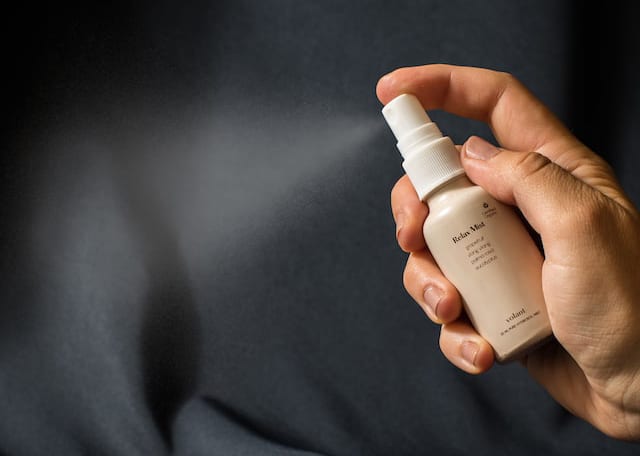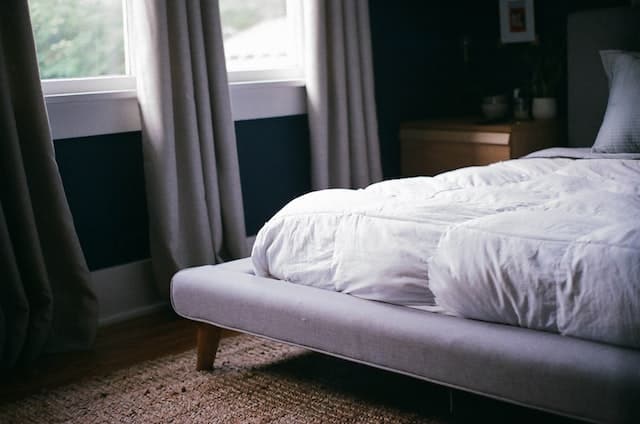If your mattress has started to emit an unpleasant odor, it is time to take action and learn how to deodorize a mattress.
Mattresses can accumulate sweat, dead skin cells, and dust over time, and even regular washing of bedding may not prevent body oils and allergens from penetrating the mattress. These contaminants can lead to breathing problems and mold growth if not addressed.
To combat the odor, we’ve gathered 7 DIY methods for deodorizing your mattress, along with additional tips to maintain a fresh-smelling sleep environment throughout the year.
7 Ways to Freshen and Deodorize a Mattress
1. Vacuum the mattress
Vacuuming a mattress is an important step in keeping it clean and fresh. It helps to remove dust, debris, and allergens that can accumulate.
When vacuuming, use the upholstery attachment to reach all surfaces of the mattress, including the corners and edges.
Keep vacuuming regularly, at least once a month, can help to prolong the life of the mattress and maintain a healthy sleep environment.
2. Deodorize with baking soda
Baking soda is an effective and natural odor neutralizer that can be used on memory foam pillows and mattresses.
First of all, use a flour sifter to sprinkle baking soda over the entire surface of the mattress, let it sit for at least 30 minutes, and up to 24 hours for best results.
Then open windows or turn on a fan to expose the mattress to natural light and air, which will help to dry up moisture and eliminate odors.
Finally, vacuum the mattress with the upholstery attachment to remove the baking soda.
Baking soda is particularly effective in treating urine stains and odors, especially when the spot is still wet.
Read More: How to Clean a Mattress without Baking Soda?
3. Water with Vinegar
To make an organic deodorizer, mix equal parts water and distilled white vinegar in a spray bottle. Spray the solution lightly over the entire surface of your mattress, avoiding saturating it and allowing it to air dry completely.
Be sure to allow the mattress to dry thoroughly before replacing it on the bed frame, and use fans or open windows to aid in the drying process.
4. Use Essential oils

Using essential oils to freshen a mattress is a natural and effective way to neutralize odors, and essential oils will add a pleasant fragrance to the mattress.
You can choose these essential oils below:
- Lavender oil
- Tea tree oil
- Eucalyptus oil
- Lemon oil
- Peppermint oil
How to spray: In a spray bottle, mix a few drops of the essential oil with water. Be sure to shake the bottle well before use, then spray the mixture evenly over the entire surface of the mattress, avoiding saturating it. Leave the mattress to air dry completely before making the bed.
5. Air it out
A moist mattress can attract a variety of unwanted organisms such as dust mites, bacteria, mold, mildew, spores, and more. To prevent this, it’s important to manage the moisture level on your mattress.
One way to do this is by turning on your ceiling fan for a couple of hours after waking up, which can help to absorb any traces of moisture.
Additionally, allowing fresh air and natural light into your bedroom by opening windows can also help to prolong the freshness of your mattress.
But it is too slow:)
6. Keep your bedding clean
Regularly washing your bedding is a crucial step in maintaining a fresh and clean sleeping environment.
This includes items such as duvets, quilts, pillows, and sheets. The chart below provides recommendations on how often various bedding items should be washed.
How Often to Wash Your Bedding items?
The frequency of washing your bedding items will depend on personal preference and usage. Here is a general guideline for how often various bedding items should be washed:
- Sheets: Once a week to once a month.
- Pillows: Every 3-6 months, or more frequently if you have allergies.
- Pillowcases: Once a week
- Blankets: Once a month to once every three months
- Duvet covers: Once a week to once a month
- Mattress: Once every 6 months
- Mattress pads: Once a month
- Comforters: Once every 3-6 months
It’s worth noting that if you have allergies, asthma, or any other respiratory issues or you sweat heavily or have pets that sleep on your bed, you should consider washing your bedding more frequently.
Also, if you notice any stains or odors, it’s best to clean them as soon as possible.
7. Mattress protectors

A mattress protector is an essential accessory that can help to keep your mattress clean and fresh.
To maintain your mattress protector, it’s recommended to take it off the mattress and wash it every few months or as soon as a spill or accident occurs.
This will not only help to keep your mattress protector clean but also prolong the life of your mattress.
Deodorize Mattress FAQs
Can you get mold out of a mattress?
It is possible to remove mold from a mattress, but it can be a difficult task and requires immediate action.
The most important thing is to address the cause of the mold, which is typically high humidity or moisture. Once the source of moisture is eliminated, the mold can be cleaned with a solution of water and white vinegar, or a solution of water and hydrogen peroxide.
It’s important to use a vacuum cleaner with a HEPA filter to remove mold spores and dead mold. After cleaning, the mattress should be left to dry completely in a well-ventilated area, and a dehumidifier may be used to speed up the process.
Should I deodorize a new mattress?
It is not typically necessary to deodorize a new mattress, as it should come with minimal to no odors. However, there can be some variations depending on the source of the mattress, storage conditions, and even personal preferences.
If your new mattress has a slight smell that is bothering you, it is likely just the smell of the materials and will dissipate over time with proper airing out. You can air it out by leaving it in a well-ventilated room for a few hours to a few days.

